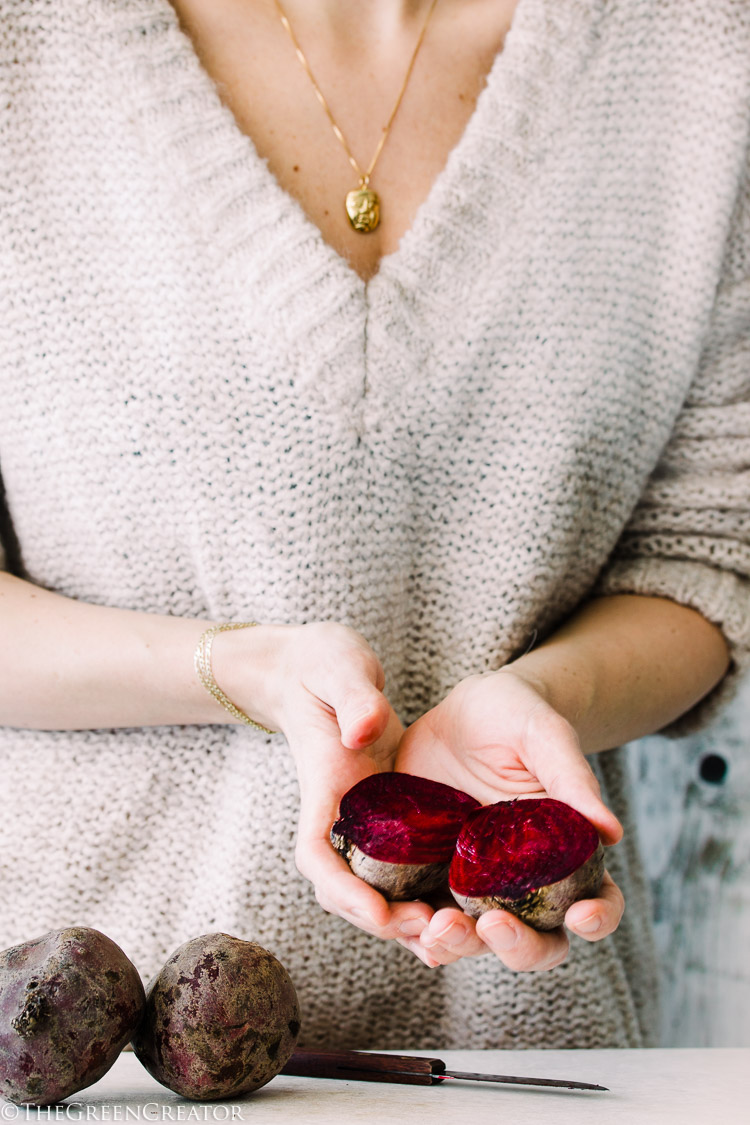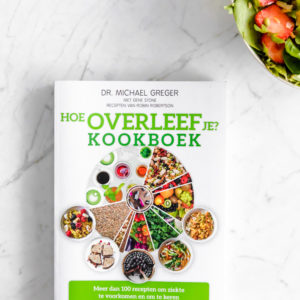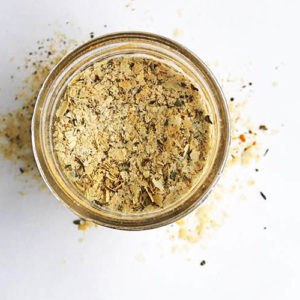I would have never written this article if it wasn’t for all the emails I received about my Thalassemia in the last few years. Thank you to everyone who emailed me and entrusted me with their (often) personal story. I feel honored to receive these emails but am also a bit nervous writing about it now. I’m not a doctor or a specialist, and I don’t know everything about Thalasemmia minor.
This post contains affiliate links. Read my full disclosure here.
What I know is only a result of my research, and after visiting many specialists (hematologists) throughout my life, I’m curious and don’t settle for simple answers. I’m also writing this article to create more awareness for this topic as there is not much information out there, and doctors don’t seem to know how to advise their patients, who often have tons of questions.
The questions I have received are primarily about getting more energy, living a healthy life with Thalassemia, what to avoid, and how I ”do it” on a plant-based diet.
Wat is Thalassemia minor?
In short, Thalassemia is a lifelong diagnosis of anemia. In this article, I’m not going to discuss all types of Thalassemia, but it’s good to know that different types of Thalassemia have a different impact. Very briefly described (for me with Thalassemia minor), this means that I was born with a lifelong diagnosis of anemia that can’t be solved like other ”non-Thalassemia” types of anemia with (for example) iron supplements.
Thalassemia minor means that you don’t have well-formed red blood cells, which means you have a shortage of healthy red blood cells. The task of healthy red blood cells is to transport nutrients in the body.
If your red blood cells are small and deformed, you cannot absorb nutrients like a healthy person in the same way or the same quantities. It’s also more difficult for your red blood cells to transport enough oxygen to your organs, making you feel tired.
There is also a much more severe form of Thalassemia, which is Thalassemia major. That’s a totally different ball game, and I don’t have that. Within Thalassemia minor, you have alpha and beta, but I will only discuss my life with Thalassemia minor to keep this article somewhat clear.
Lifelong anemia
In practice, this means that I will always be a bit more tired and paler than the average woman of my age (hello, forever dark circles under my eyes). Thalassemia is an inherited blood disorder that causes my blood (hemoglobin) to produce insufficient and abnormal blood (= hemoglobinopathy).
Hemoglobin is the oxygen-carrying component of our red blood cells. It consists of two different proteins, alpha, and beta. If the body doesn’t produce enough of one of these two proteins, the red blood cells are insufficiently formed. As such, they will not be able to transport enough oxygen in the body since hemoglobin is an iron-rich protein that usually transports oxygen to all parts of the body.
Thalassemia patients are born with the disease, and there is no cure for it. Thalassemia is not contagious like HIV, but a woman can transfer Thalassemia to her child during her pregnancy. Millions of people worldwide suffer from Thalassemia. Alpha Thalassemia mainly occurs in families with their roots in South East Asia, India, China, or the Philippines. Beta Thalassemia occurs primarily in patients from areas around the Mediterranean Sea (Greece, Italy, and the Middle East) or of Asian or African origin.
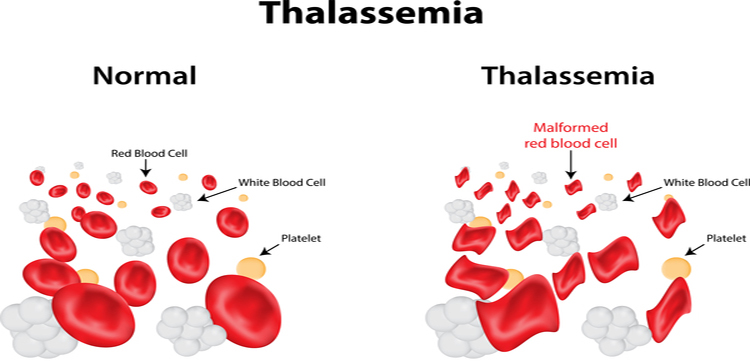
Diagnosis
I was diagnosed at a relatively young age. As a baby, I was pale and tired, and after a blood test, the result was that I was anemic. I was prescribed iron supplements and almost immediately fell ill. Fortunately, my doctor at that time discovered that I had Thalassemia minor, and that’s how my father found out as an adult that he was the carrier. He never had any symptoms, but I once read that women suffer more from Thalassemia because of their menstruation. I have never taken any iron supplements after that because I know it will not cure Thalassemia (more on that later).
Furthermore, I was told that this is my DNA, it can’t be cured, I can become 100 years old with it, I won’t notice anything of this blood disorder since I was born with it and I will not be limited in my daily life. ”You can’t miss what you never had”, the doctor said.
My symptoms
Anemia, lifelong anemia. For me, this is the best way to describe Thalassemia. However, the symptoms of Thalassemia can vary significantly from person to person. During different periods in my life, I had more or no signs at all.
Some people only experience mild issues, others much more. Sometimes the symptoms are tiredness and overall weakness. Often I feel great. And sometimes I’m very pale, although I feel fine. I will always have dark circles under my eyes, though, no matter how good I feel and sleep. Sometimes I’m a bit lightheaded. Overall this is how I can sum up my symptoms, and I don’t know any better. I’m not limited (and don’t limit myself) in my daily life by Thalassemia minor.
However, if I don’t take care of myself, I can have more problems with my Thalassemia minor or actually a symptom of anemia. By that, I mean that I’ll feel a bit more tired and look paler.
I don’t have to stay at home or adjust my life for that anymore, though (like I had to in the past). If I had a lot of problems with my anemia, I would feel tired, but I would also be short of breath, weakened, faint easily, have muscle pain, cramps, and be more thirsty.
The actual symptoms are for the patients with Thalassemia major. Again, that is a whole different ball game. Nonetheless, Thalassemia minor can also be kind of a pain. Especially when I was younger and wanted to join the rest of the world and the ”normal” people around me and wanted to go out night after night… Thalassemia minor is then not that much fun.
Other symptoms
It’s good to note that chest tightness, hyperventilation, a panicky/nervous feeling, and even depression can also be a symptom or rather a result of Thalassemia. I have suffered from hyperventilation for a long time, but it can be challenging to make a distinction if you have anemia. The symptoms may look alike.
Other symptoms that I don’t (hardly) experience anymore are: dull feeling/tingling in the limbs, hair loss, dark urine, thyroid problems, weakened immune system, and feeling cold and lightheaded.
Iron Supplements
I never had anemia in my life because of an iron deficiency (or even had such a thing as an iron deficiency). Luckily, I have never taken iron supplements unnecessarily ever again. When doing a routine blood test, I mention I have Thalassemia, though. Otherwise, I might get a phone call that I have anemia and need iron supplements (even if my iron levels are good!).
The danger of taking iron supplements if you don’t have an iron deficiency is an overload of iron in the blood, and this is, for example, such a big issue with the more severe Thalassemia major. Due to many blood transfusions in major patients, an iron accumulation can occur. The body can’t get rid of too much iron, and the iron quickly accumulates in the already small/deformed red blood cells, leading to severe complications.
I’ll repeat myself now, but again Thalassemia major is entirely different. And with Thalassemia minor, iron supplements will not help if Thalassemia causes the anemia and if there is no iron deficiency.
I was told that Thalassemia major patients died at a relatively young age due to the complications of chronic blood transfusions (especially iron accumulation in the liver and the heart), but this was already quite some years ago. After introducing and improving so-called ”anti-iron therapies” (chelation therapy), the prognosis for Thalassemia major patients has improved significantly.
I often receive emails from readers asking why they don’t feel any better after taking iron supplements. It’s essential to understand what causes your anemia. Do the necessary blood tests. Do you have an iron deficiency? As you often see in a mild Thalassemia, doctors sometimes confuse the small red blood cells as a sign of anemia due to iron deficiency and incorrectly prescribe iron supplements.
The decision to take iron supplements because you have anemia caused by Thalassemia is something you should discuss with your doctor and not something you should decide for yourself.
My life with Thalassemia minor
Thalassemia is not curable, but I remember my mother was doing a lot of research to look for something to give me a little bit more energy. As a child, I had much more problems with anemia than now.
For example, for years, I have been drinking Floradix (it’s also available as a supplement) with the hope that this would make me feel stronger. It’s a natural iron supplement that should support the body when feeling fatigued. It’s made from plants and fruit juices with some vitamins. I can’t say that this helped.
In addition, since the diagnosis of Thalassemia as a baby, for decades, I have been taking high doses of folic acid (only available per doctor’s prescription). I was always very precise with this and never skipped a day. At the moment, I don’t take high doses of folic acid anymore.
My life with Thalassemia minor on a plant-based-diet
A lot has changed after all those years. I’m older now and know my body much better. I have been eating quite unhealthy during my years in high school and as a student. I also got infected with a heavy Epstein Barr virus (Pfeiffer), which was not helpful. As a child and student, I was often ill. Tired, dizzy, weakened, and I got every virus going around. On some days, I would feel drained.
I have tried a lot, but what I do now works best for me. I decided it was time to look further and find answers as to how I could physically feel better with the body and blood I have. I started to focus on unprocessed whole plant-based foods after being a vegetarian for some years at that time.
I haven’t seen a doctor in a long time now, but the answer was a bit remarkable the last time I mentioned my diet to my GP. He said: “On paper, this is a tricky diet for your blood. Meat should always be a part of your diet, but since you feel so good and your blood results are good (the severe anemia is gone), my advice is to continue with this”. This gave me the impression that my doctor doesn’t know what good (diet) advice is for people like me.
I have never doubted or stepped away from my diet ever since. However, I wanted to know what Thalassemia minor is and if there is anything I need to consider. As such, I have visited a few hematologists to understand Thalassemia minor better. This has led to my current lifestyle and the knowledge that I have.
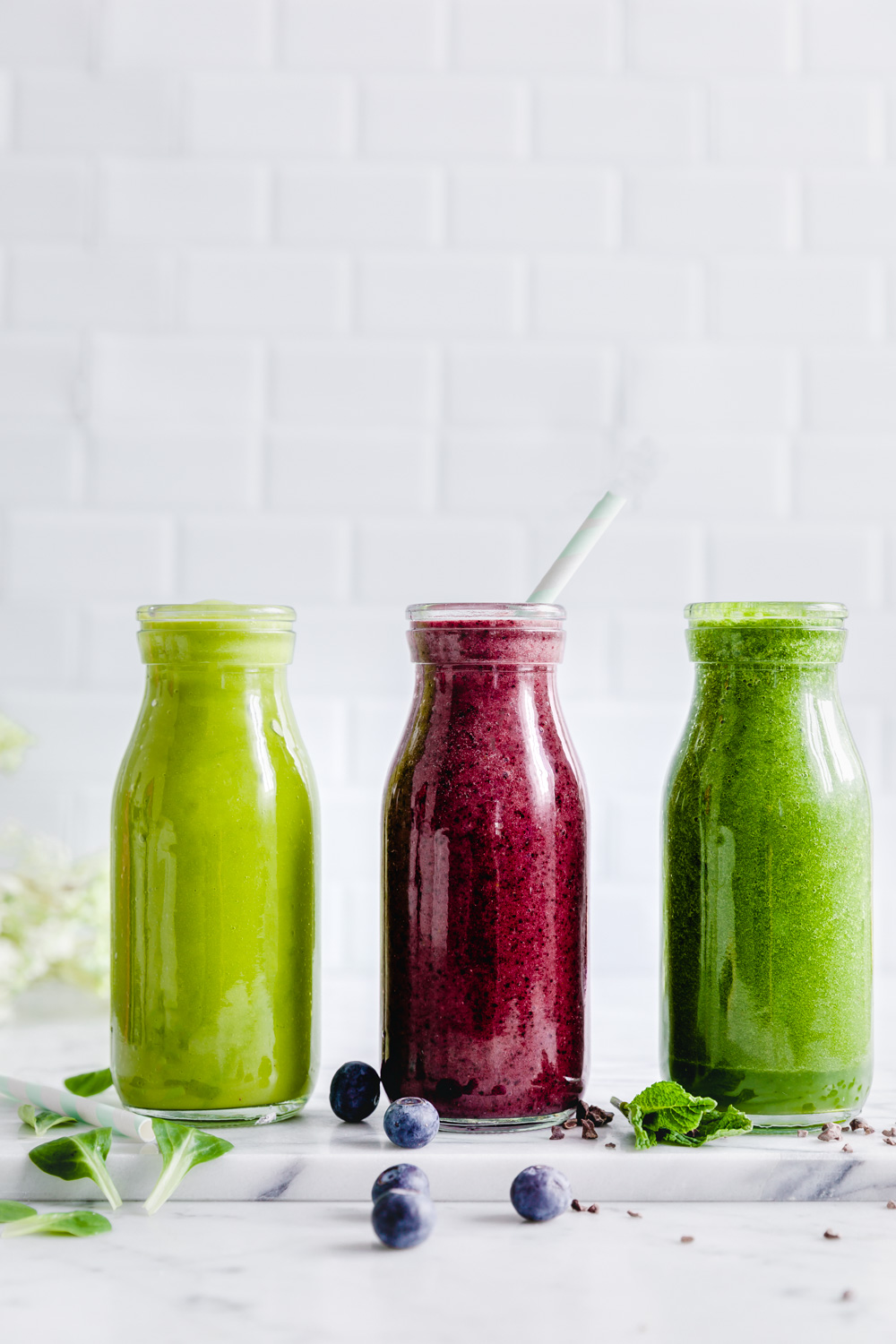
This is what helps me, what tips I have received, and the advice I have collected from specialists (hematologists) over the years:
Diet
I’m convinced that diet plays a vital role in Thalassemia. However, it can be tempting not to care about nutrition when you have Thalassemia. An overwhelming feeling arises easily where you might think: ”I’ll have this forever, so I can’t do much about it.”
However, especially with Thalassemia, living a healthy life is important. There is less room to make unhealthy choices without noticing. Nonetheless, the tiredness and often associated thoughts can make you reach out very quickly for something sweet to feel better, eat it away, or boost energy (even if this is counterproductive).
Because I have tried for years to deal with this the unhealthy way, I know that healthy eating makes a world of difference. Especially with Thalassemia, it’s important to build up a sound immune system and get enough vitamins and minerals in your diet. The dietitians and specialists I visited recommended me to eat meat, and that was the only advice I ever got. This advice never helped me.
I now pay attention to my diet that is entirely whole food plant-based (and a bit of vegan junk food once in a while); with a variety of fresh foods. I don’t drink coffee or alcohol and listen to my body’s needs. I also make sure that I don’t stress too much or too long. This also applies to my diet. When I eat a vegan cake, I enjoy it, and I don’t feel guilty about it. I also noticed that if I make an unhealthy choice once in a while, my body isn’t suddenly much more tired. It’s about the overall picture and not about the treat every now and then.
Juices rich in red beets and spinach give me a lot of energy. But also here, the same applies: an occasional juice makes no difference, but a routine does.
Gluten & sugar
There was a time I did not respond very well to gluten, so I eliminated it then. At the moment, it doesn’t affect me, and I eat gluten. A sugar addiction is also something I’ve struggled with for years. It was an ideal way to mentally and physically get through a particular moment of the day when I would feel sluggish or tired. Someone else might be more likely to grab a cup of coffee or any other stimulating drink to feel better. It’s tempting and easy, but it doesn’t work in the long run.
Meat
My GP always told me that meat is my best friend. I never understood this very well. When I asked why the answer was: iron. The thing is that I never had an iron deficiency, and I always made sure to get enough iron from other foods in my diet. Because yes, it’s certainly a good thing to pay attention to your iron intake if you have Thalassemia.
I was advised to eat a lot of meat, such as liver and steak. And I did so for many years as a child without ever noticing a difference in how I felt or my blood results. At that time, I already didn’t enjoy eating meat and ate it because I had to. Fortunately, there are also other sources of iron. Eating meat is not the only way to provide the body with iron, although iron found in meat is easier to absorb by the body.
When I started following a whole food plant-based diet, I luckily noticed a difference. The longer I was eating like this, the better I began to feel. It never made a difference to my body whether I was eating meat. I’m not implying that this approach works for everyone and a vegan/vegetarian diet is therefore not a general rule to feel good under this blood condition. But, a lot of fresh, unprocessed products with lots of vitamins, minerals, enzymes, and fibers is what worked for me.
Water
Every day I drink 3 liters (0.80 gallons) of water. This may sound like a lot of water to some, but it helps me tremendously. I may be a little more thirsty than the average person, but I have slowly worked myself up to this amount. Water contains oxygen, and it helps the red blood cells to transport nutrients.
I once lived on two small glasses of water a day, and I ended up in the hospital because I felt so terrible. I just need a lot of water, and I’m grateful that a specialist once told me this. I feel more energetic because of my water intake, and I’m not short of breath. Especially in the morning, I flourish after my first liter of water. It makes a world of difference.
Wheatgrass
Wheatgrass is an important addition to my diet, in any form: freshly squeezed, as a powder, or as a supplement like this one here. It seems that it’s good for the hemoglobin values. Even Thalassemia major patients who drank 100 ml of fresh wheatgrass juice a day noticed benefits. Me too, so I take this as often as I can. I must honestly say that sometimes I’m a bit lazy, so I take the supplement or powder instead. It increases my resistance and gives me energy. Recently I’m also using chlorophyll for the same reasons.
A Medjool date a day also helps me when I want to feel a bit more energetic without having to reach out for a vegan chocolate bar. It’s a natural source of sugar and energy, and it also contains some fibers, minerals, and vitamins.
Good to know
Pregnancy
All specialists have told me that pregnancy is the most normal thing in the world for Thalassemia minor patients (I don’t know if this is also the case for Thalassemia major).
You will, of course, need to inform your gynecologist and doctor so they can keep an eye on you with blood tests to be able to intervene in case your anemia becomes too severe. An at-home birth is not recommended since there can always be complications, such as too much blood loss. Therefore, giving birth in a hospital with a doctor is the best option.
If you are in a relationship with the wishes to get pregnant, it’s good to know whether the other person also has Thalassemia (major or minor). This is not a very romantic question. Nevertheless, a test is the only way to figure it out and know.
Although Thalassemia is not transmittable between people, if you ever decide to have a child with your partner, you’ll need to know whether your significant other also has Thalassemia (even if she/he feels fine).
Having the wish to become pregnant is no problem if only one partner has Thalassemia. But if both partners have Thalassemia, there is a significant chance that the child will be born with Thalassemia major, even if you both have minor. I don’t know how this can be solved/prevented nowadays because my partner has no Thalassemia, so I never had to worry about this or dig further into it this topic.

Heights
Specialists have also told me that I can’t go climb up a mountain. I was told that climbing very high mountains was considered not to be safe, but I was never given any specific information as to which height (I think this can be different for every person).
If you have Thalassemia, you have less oxygen in your blood, which can be a problem at high altitudes when there is also little oxygen in the air. This was a bit exciting during certain holidays, such as in Switzerland. I’m not taking any significant risks and don’t go up too high. If I go up any mountain, I won’t be climbing it for hours. Fortunately, I also don’t feel the need to do this.
Another specialist told me that I could go up a mountain but not walk for hours/or get my heart rate up. I’m not going to try it out, and I’m okay with this. If you want to climb a mountain, I think there is a precautionary framework that you can discuss with your doctor to make this possible.
The funny fact is that many people with Thalassemia have a low heat tolerance and often feel cold (cold hands and feet). Personally, I’m not too fond of hot temperatures since it makes me feel nervous/restless. So tanning in the sun is not something that I do or enjoy. I prefer a seat in the shade.
Fatigue
This is a tricky issue. Doctors are quick to say that all symptoms are normal and that you have to accept them. Or they will tell you that you can’t actually notice any symptoms because you were born with fatigue (anemia) and don’t know any better.
I agree with this if the fatigue is not too bad. After all, I indeed don’t know any better after, but if the fatigue worsens, I will definitely notice it. Especially when I was in my twenties, I suffered from the fatigue, but perhaps also because I had to deal with the aftermath of a severe Epstein-Barr virus. Staying in bed was not an option and didn’t help me either.
The fatigue is not sleepy fatigue but overall fatigue. It’s pretty difficult to explain. The fatigue will be there every day, so you have to push yourself to find the energy for (often) simple everyday tasks. Discipline and determination are then necessary. During those periods, it’s even more important to find the time and energy to cook a healthy meal and go for a walk instead of staying at home on the couch. Accept it, and don’t worry too much if you fail.
Listen to your body. Rest and acceptance is the only thing that helps. This may include more sleep for one person, and for the other, this will mean extra time to relax. If you know that the fatigue is worst in the morning and you have difficulties getting going, try to organize your morning in such a way that you have time to prepare for the day. Know where your weakness is and try to adjust your life accordingly.
Stress
Just like many other health problems, Thalassemia is also affected by stress. I have noticed a link between increased stress and fatigue, but who doesn’t? It’s difficult to indicate to what extent this plays a role with fatigue since I never knew any better, but I do notice that I feel the need to take it a bit easier after a stressful period.
Exercise
Working out or doing any movement is probably the last thing on your mind when you feel tired, but it’s essential. Listen to your body and push yourself mentally if necessary, but also take a step back if necessary. Plan an easy day. Walk instead of jog. Take a nap. Taking it easy is not the end of the world, and I usually feel much better afterward! Mainly because I no longer feel guilty about it. To give you a better picture: I take about 4 times a year an ”emergency ”afternoon nap, haha. But I no longer feel guilty about it as I did before.
I don’t do things that exhaust me too much. You probably won’t see me doing Crossfit any day, but I work out six times a week. But everyone is different. A specialist once told me that I’m not a suitable candidate for endurance sports, but that is exactly what I love to do and what I’m good at. So I think this approach is different for everyone, and you’ll need to try out which activity makes you happy and what you love to do.
Don’t be too hard on yourself
The fatigue is different for everyone, but it’s there. So don’t be too hard on yourself. Many people feel depressed and incapable when the symptoms are bad. If you often feel tired, it’s pretty normal that you don’t feel great about yourself. You think that you fail or can’t join the society at the same pace as others do. You feel lazy and not productive, and for some people, this even leads to depression. I only suffered from this if I was too hard on myself. It just doesn’t work if you fight yourself or expect too much from yourself.
I noticed in high school very soon that I couldn’t party night after night without feeling the effects of it days afterward. Instead of pushing myself, I accepted it. I’m happy and grateful for my body and what it can do. Nobody (and no body) is perfect, and everyone is physically different.
It also helps to reflect on the fact that there are much worse diseases and that it only leads to disappointments if you keep comparing yourself to ”normal” people. Ok, I’m not going to party until well after midnight. So what?
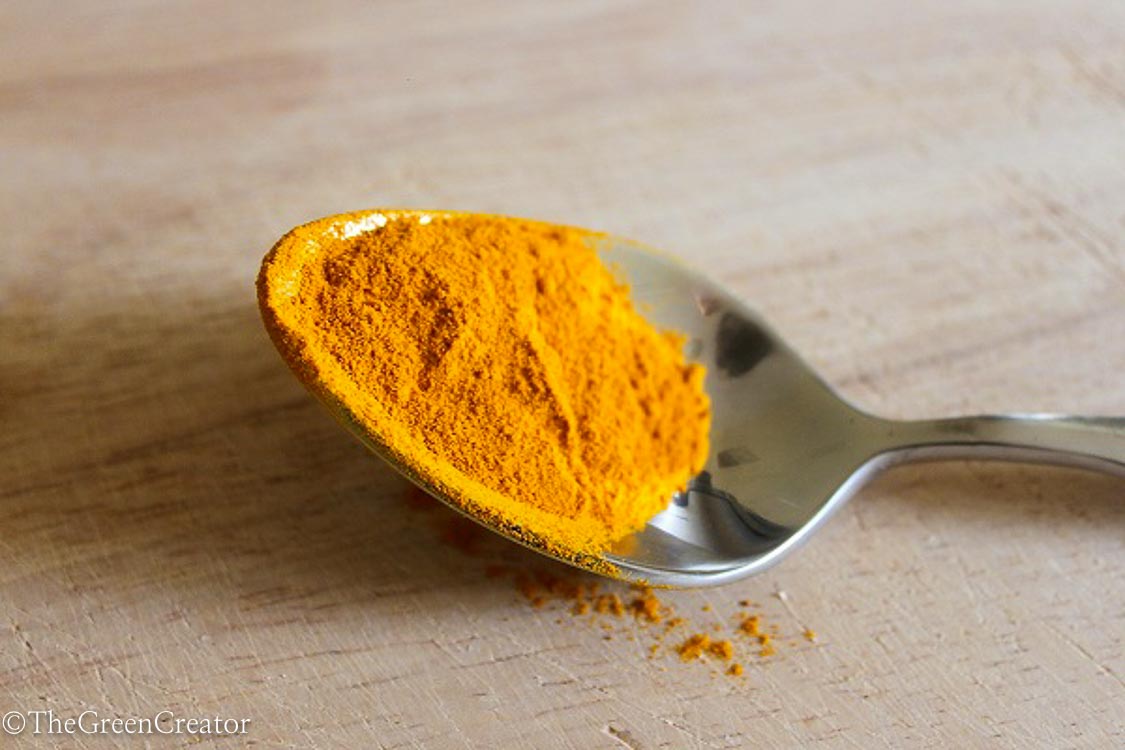
Supplements
There is a list of supplements that many Thalassemia minor patients take. I’ll mention all the supplements I know because they crossed my path during my research, but I don’t take all of them.
Iron
I’ve already talked about this: don’t take iron supplements before discussing with a doctor that you have Thalassemia with an iron deficiency. Red blood cells indeed carry around iron in the body, but they can only carry a certain amount of iron because they are much smaller than healthy red blood cells. Don’t experiment with this yourself or with a doctor who doesn’t know that you have Thalassemia.
I’m not against iron supplements, but I’m against taking unnecessary iron supplements because of a possible iron accumulation in the blood. If you have an iron deficiency, iron supplements are a good idea. I never had an iron deficiency and, therefore, never took iron supplements. I’m not a doctor, but after all those years, I dare to say this: iron supplements won’t help with Thalassemia and won’t make the Thalassemia go away (as some doctors say). It also won’t help in making you feel less tired. You can read here more about iron on a plant-based diet.
CLA1000
Even though CLA1000 is a fat, it’s known as a diet (weight loss) supplement, and I have never tried it or looked much into it. I understand that some patients take this because it seems to store energy. CLA1000 will store your food and energy better and ensure that fat is converted into energy. I would discuss with your doctor whether this is suitable for you.
Folic acid
According to doctors, folic acid helps to build healthy red blood cells. I get a considerably higher dose than you can find in any drugstore. For decades I have been taking this every day and have decided to stop for a while now. I don’t notice a difference in my body/energy levels.
I stopped taking folic acid due to studies that I have read about the side effects of high dosages that slightly worry me. I have not been able to find any studies as to whether these side effects may be different for me with Thalssamia minor, and my doctor couldn’t give any advice on this matter.
Vitamin D
Vitamin D is important for me, and I take this all year round. I also regularly go for a blood test to see what my vitamin D levels are so that I’m sure I’m not taking too little or too much vitamin D. This vitamin can for example also be a good idea if you are feeling a bit depressed, whether or not caused by Thalassemia minor.
However, preventing a vitamin D deficiency has many other health benefits, so I think this is an essential vitamin. The body cannot get rid of too much vitamin D, though, so it’s helpful to know what a safe dosage is for you via a blood test.
B- vitamins
Not only do I make sure to take my B12 supplement (although I have been at my max for years when I get my blood tested), but I also make sure that I get in all the other B vitamins too so that the formation of my red blood cells is optimal, my food can be converted into energy and that I feel more energetic.
Vitamin E
To a certain extent, vitamin E is important for forming red blood cells. But this vitamin is especially important for maintaining and protecting the red blood cells. I get this from my diet. Like vitamin D, it’s not a good idea to take high dosages of vitamin E supplements without knowing your blood values. An excess of vitamin E builds up in the body.
Magnesium
I use magnesium from a spray bottle that I make myself. It works well with muscle cramps and has many other benefits for the body. I spray magnesium under my feet and make sure I especially do this when I have difficulties falling asleep. This sounds contradictory (aren’t you always tired?), but sometimes the body works pretty hard to keep it all running with those weird red blood cells with the result that I feel restless. Magnesium under the feet and lavender oil in the diffuser often help.
Antioxidants
The emphasis on antioxidants is big. I take this from my diet and don’t take this as a supplement. A whole food plant-based diet rich in fresh fruits and veggies is an excellent way to get plenty of antioxidants.
Turmeric
Some people also add turmeric as an antioxidant to their list of supplements. Turmeric can be bought as a supplement, or you can add it to your diet. I’m daily cooking with turmeric in combination with black pepper to increase the absorption. Occasionally I will also buy a jar of turmeric supplements.
Zinc and copper
I don’t take zinc and copper supplements, even though this is often recommended. If my blood levels were low in zinc and/or copper, I would take this supplement, but I probably get enough from my diet since all is fine.
Ginseng
A specialist told me about the positive effects on physical performance and endurance when using ginseng. I don’t use this, so I can’t say anything about it. I would discuss with your doctor whether this is suitable for you.
Selenium and vitamin C
I get both of them from my diet (e.g., selenium from Brazil nuts)
I’m careful with multivitamins because this is a mix of anything and everything and often too much or too little of what I need or what I already get from my diet.
After reading about all the supplements mentioned above, I can imagine you’re wondering if you really need all of them. But as you may have noticed, I get most out of my diet rather than from a supplement. The focus is always on healthy food with various nutritions plus a few supplements such as vitamin B12 and D. All the rest is personal and depends on your blood results and symptoms.
Every day I try to focus on nutrition that the red blood cells struggle to transport in the body, such as iron. I vary a lot with the food I eat, and I also combine a lot of food (like iron) with fat or vitamin C for better absorption. But I also make sure that I generally eat a lot of fresh fruits and vegetables. Green smoothies (low/no fruits) are perfect for this. As a result, I can’t even remember the last time I fell sick. Yes, I’ll always have anemia, but my body can deal with it so much better with good nutrition, rest, and a routine.
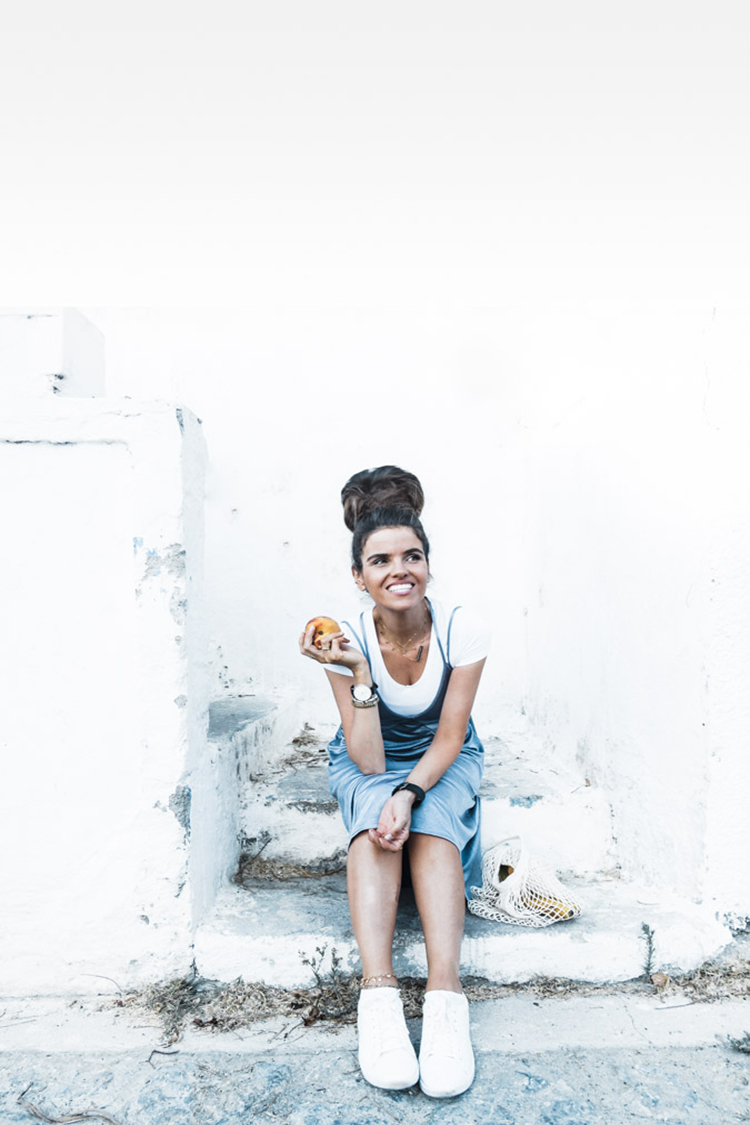
Mental health
What I know for sure is that my mental health is just as important as my diet. I have been a great proponent of a gratitude routine for quite some time. It helps me put things in perspective and remind myself of all the good things in my life. It also helps me not make a thing out of small issues to avoid stress.
Time for myself is also important (like a lot!) because it helps me build a positive relationship with myself where I stand up for myself instead of criticizing myself. Learning to love and accept myself is a lifelong journey, but at any moment, I have the choice to take a step in the right direction by simply dealing with myself more lovingly.
Push
I often push myself. Yes, it’s very painful if your doctor tells you that you can’t notice any symptoms because you were born with it or that it all can’t be that bad while you feel so tired. But I have to admit that we have control over how big we make a problem.
As I get older, I can tell very well when I’m really tired or just looking for an excuse to hide behind the diagnosis, for example, not to work out. I, therefore, think that I probably push and motivate myself a little more often than the average person to get something done. If I don’t feel like it and think I can’t do it, I noticed that by pushing myself and doing it without overthinking, I get things done.
You’ll be amazed by all the things you can do instead of focusing on what you can’t. The book ”The 5 Second Rule” is a book that recently helped me a lot by pushing me to just do it. People with Thalassemia lift heavy weights, run a marathon, run three successful businesses, and raise four children. Everything is possible.
Anemic episodes
Although I have anemia 24/7, only a few times a year, I’ll have a so-called ”anemic episode” where I’ll feel drained. I feel worn out, and at the same time, I can’t be bothered to do anything. That’s when I know I’m too tired. I allow myself to rest completely (often, I’ll only need 30 minutes on the couch), and I’ll feel good again.
This sounds rather obvious (you’re tired, so you rest), but two extreme things are possible. You give up too quickly (and don’t realize that everyone is tired once in a while, and that’s normal), or you push yourself too hard (like me) and create unnecessary stress and guilt if you rest.
A few times a year (this can be a lot more often for you and even several times a week), it will not announce itself when I have an ”anemic episode”. So sometimes, I have no idea what’s going on. Is it my hormones? Did I work too hard? Am I depressed? After a while, I realized that the anemia was causing the issue. I adjust my workout routine a bit and make sure that I rest when I need to. I pay extra attention to my diet and water intake, and that’s about it.
During this period, I feel empty (both physically and mentally), and that’s okay. I’m no longer trying to resist this, and I’m grateful that these episodes are so rare nowadays. For example, I never had to call in sick at work, but I often canceled social activities because I wanted to have the evening to myself, and/or I didn’t feel like paying the price days after going out one night.
Surrender and it will pass much faster.
In short: rest if you feel that you need to and don’t feel guilty about it. However, try not to hide behind your Thalassemia with everything that goes wrong or fatigue. “Normal people” are also tired sometimes. See yourself as a person without Thalassemia minor. Maybe you sleep too little? Do you drink enough water? Are you eating enough? Do you work too hard? Are you socially too busy?
I don’t like to write about this and haven’t done so earlier (despite many requests) because I don’t think it’s important. I AM not Thalassemia, I HAVE Thalassemia, and I decide how much attention I give this. I don’t consider myself different or a person with less energy. While writing this article, I asked my partner if he thinks I’m different from other women my age, and he immediately said no.
You won’t even know or notice that I have Thalassemia unless you’re a family member. Many describe me as an energetic and enthusiastic woman. Sometimes a problem only gets worse if you pay more attention to it or fight against it. I prefer not to pay too much attention to it because what you don’t focus on can’t get bigger.
The above tips are personal and a summary of many years of my search for what Thalassemia minor is and to what areas in my life I need to pay extra attention to. I hope this article answers the many questions I have received in the last few years.
This article is not intended as advice but as an inspiration. I encourage you to do your own research or adjust your diet to a healthier diet and see what works for you. Because what works for me may not work for everyone. I believe every person is unique.
I hope this article is a comfort for those who feel alone or different and can find little information online because some awareness for Thalassamie would be so welcome, right?
If this article was helpful (in any way) or if you have any tips/experiences with Thalassemia, I would love to read it below or on Facebook or Instagram.
Also, for all of you who asked what I eat, I can recommend having a look at my e-cookbook The Green Bowl, which covers it all.
sources:
- https://www.hematologienederland.nl/thalassemie
- https://www.hbpinfo.com/index.htm
- https://www.oscarnederland.nl/
- https://ghr.nlm.nih.gov/condition/beta-thalassemia (photo Thalassemia)
